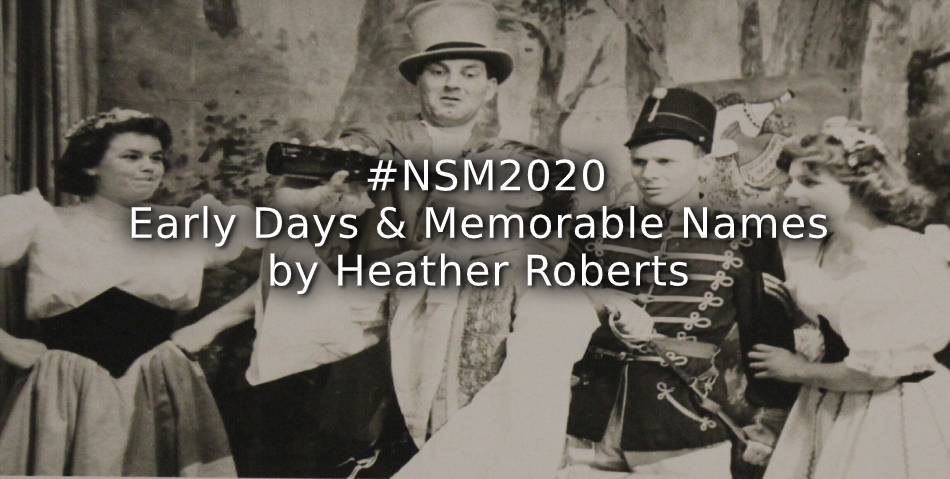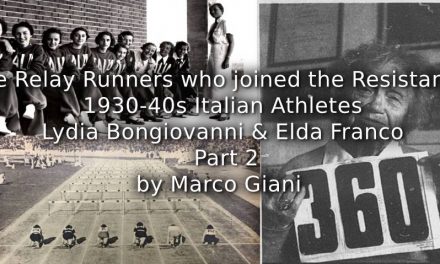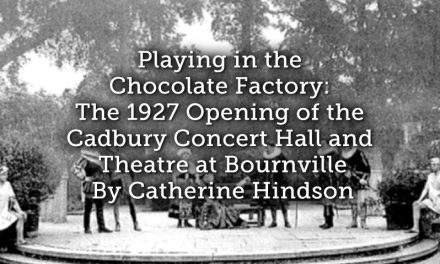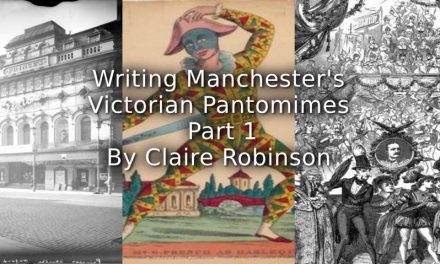To read Part 1 of this series of papers please click HERE
In the second article in the Northern School of Music series, we delve deeper into its origins, its first few years and its most notable characters.
The Matthay School of Music
The school itself was the Manchester Branch for Tobias Matthay’s own music school in London, which focused solely on teaching the influential piano playing techniques that Matthay himself developed. However, its origin story is much more than a simple Northern franchise.
In the early twentieth century, the main representative of Matthay in Manchester was a chap called Percy Waller. At the start of the First World War he enlisted and of course left his pupils bereft of a teacher. Reaching out to his other trusted pupil in the area, Matthay called upon Hilda Collens.
After the war, Hilda had developed a plan. The benefit of teaching individual piano lessons could be supplemented greatly, she knew, by lessons in harmony, theory, aural skills and more. The Royal Manchester College of Music did this, yes, but it did not focus on Matthay’s techniques and was not overly concerned with training music teachers.
With the support of like-minded people such as Walter Carroll (1869-1955, composer, author, choirmaster, teacher) and Stewart Macpherson (1865-1941, musician, teacher, author), she created a formal training school to serve this wider purpose. Matthay leant his name to it and in 1920 the school opened in a studio room above the Hime and Addison music shop on Manchester’s Deansgate. It boasted one teacher (Hilda Collens), nine students and one piano.
Hilda herself
Whilst there is a relatively rich archive of the school, we don’t know a great deal about Hilda. She was an extremely private person and as far as we know, left no archive. Most of the information we have is from the Northern School of Music archive itself, Robert-Blunn’s book (Northern Accent: the life story of the Northern School of Music, 1972), and the little titbits of her own voice held in other collections.
What we do know, however, explains a lot about the resilience and character of the school she founded.
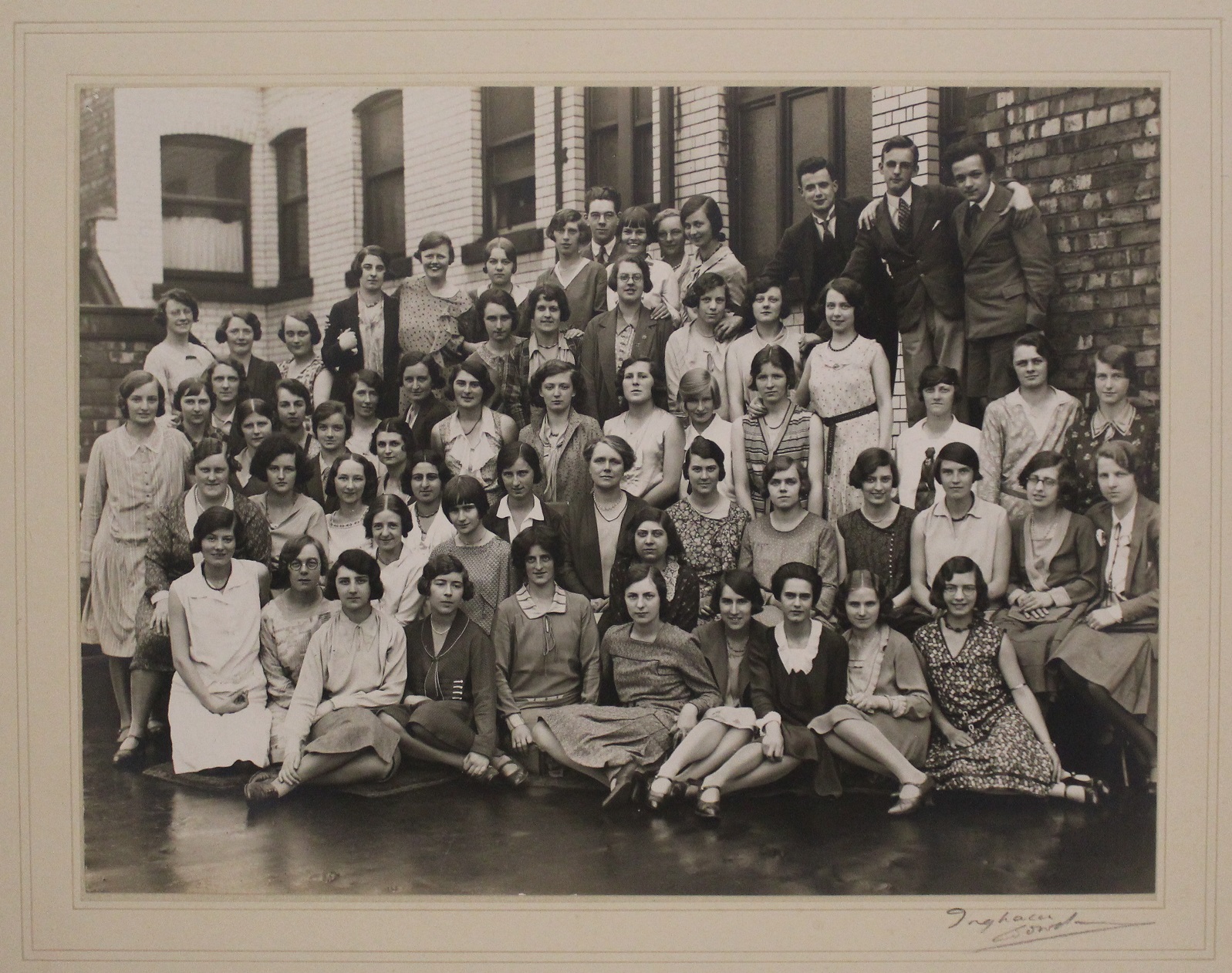
Hilda Collens with students in the early years of the Northern School of Music, c.1930
Hilda Collens (1883-1956), had always wanted to be a music teacher. Her family were supportive until the tragic drowning of one of her brothers was held responsible for the impediment in her speech; a hesitation which her father apparently tried to persuade her was the end to her dream career. With determination and steady resilience, she strode on through, landing a job teaching piano at Sale High School for Girls.
She discovered Tobias Matthay via the Manchester Association of Teachers (where she met Walter Carroll etc.) and was so inspired that she travelled regularly to London for lessons with him, all the while maintaining her teaching role and private tuition. It’s this perseverance that carried the momentum of the school’s success so rapidly in its formative years.
The first few years
After just a couple of years, the premises clearly were not cutting it. Hilda moved the school along Deansgate to 3 rooms in the Tudor Galleries and again in 1927 to 260 Deansgate. The best thing about these new premises was apparently the small electric cooker allowing staff and students the benefit of a hot cuppa during the day.
Given that the school only appeared to promote itself from 1925 via short adverts in the Manchester Guardian, this growth is remarkable and speaks to the reputation of the school and Hilda’s leadership.
In the early 1930s it was to move again to its final lot of premises on Oxford Road, but the foundations for the school were firmly set in its approaches and traditions. Assemblies were led with a prayer and sometimes a bible reading, students would give public concerts regularly at venues across the city, and of course the holistic curriculum and loyalty to the school’s aims pervaded.
So much so that most teachers were happily recruited from their alumni, as well as attracting the likes of Alfred Barker, leader of the famous Hallé Orchestra. Many of the staff throughout the decades certainly left impressions on their pupils. Some more than others.
Ida Gertrude Carroll (1905-1995)
Daughter of Walter Carroll, Ida started as a piano student under Hilda Collens in 1922. As the school progressed, so did the need for more instruments in order to deliver larger performances. When a string orchestra was established, they needed a double bassist and Ida volunteered to learn.
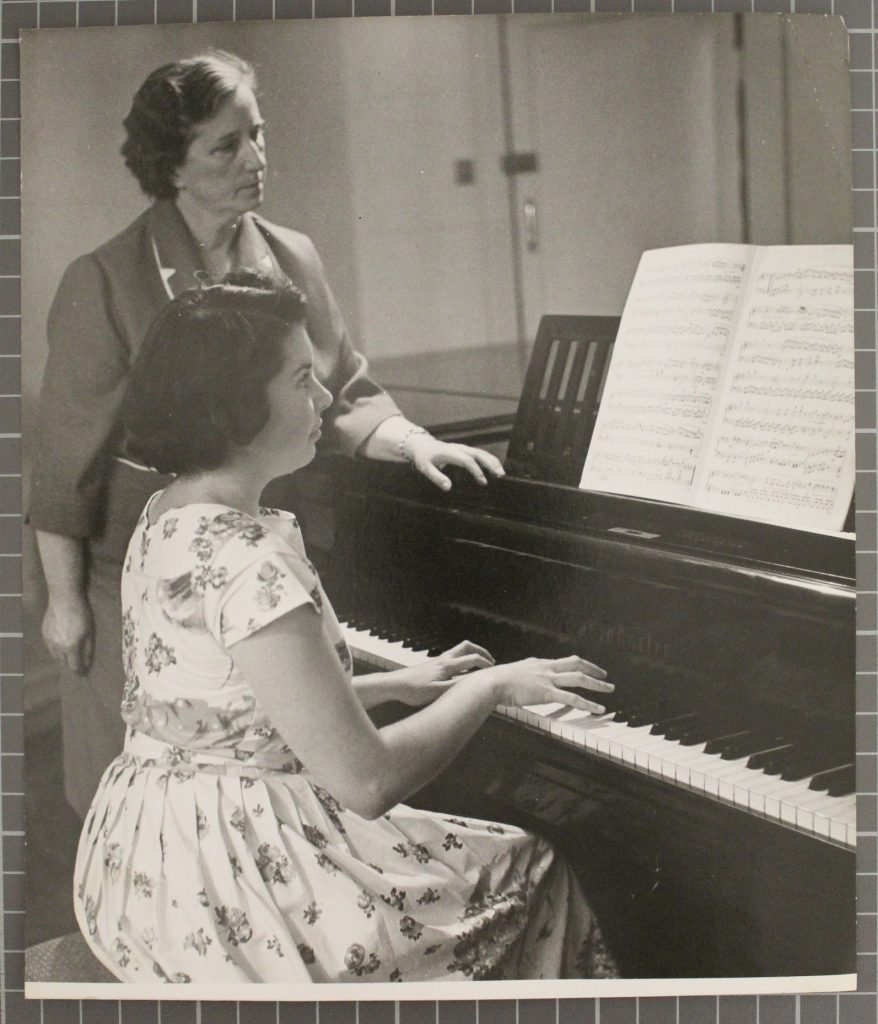
Ida Carroll overseeing a piano student’s practice at the school, c.1965
Her dedication to the school matched Hilda’s and after graduation she was appointed secretary and, after Hilda’s death, principal.
She was a firm believer in fighting for your values and would not be bullied or bargained with. In fact, rumour has it that when the Manchester local authority needed to build a flyover to the new Mancunian Way through the city centre, right in the path of the Northern School of Music, she refused and made them build it around her. Hence the curve as it arcs over the city.
One of the reasons everyone remembers her is possibly because she remembered everything about everyone else. No personal business was sacred if it impacted your studies. According to the experiences of some, she would invite you to her office with the dreaded note “See me, IGC”. Standing nervously before her, it would be gently insisted that the “boy troubles” you were convinced you had kept secret, were not worth your education and to knuckle down to your studies instead.
You did not cross Ida, you did not underestimate her, and you certainly did not expect her to move an inch from her loyalty to the school. As the local councils would find out in the 1950s, to do so would lead to almost two decades’ worth of meeting agendas. More about that in a later article.
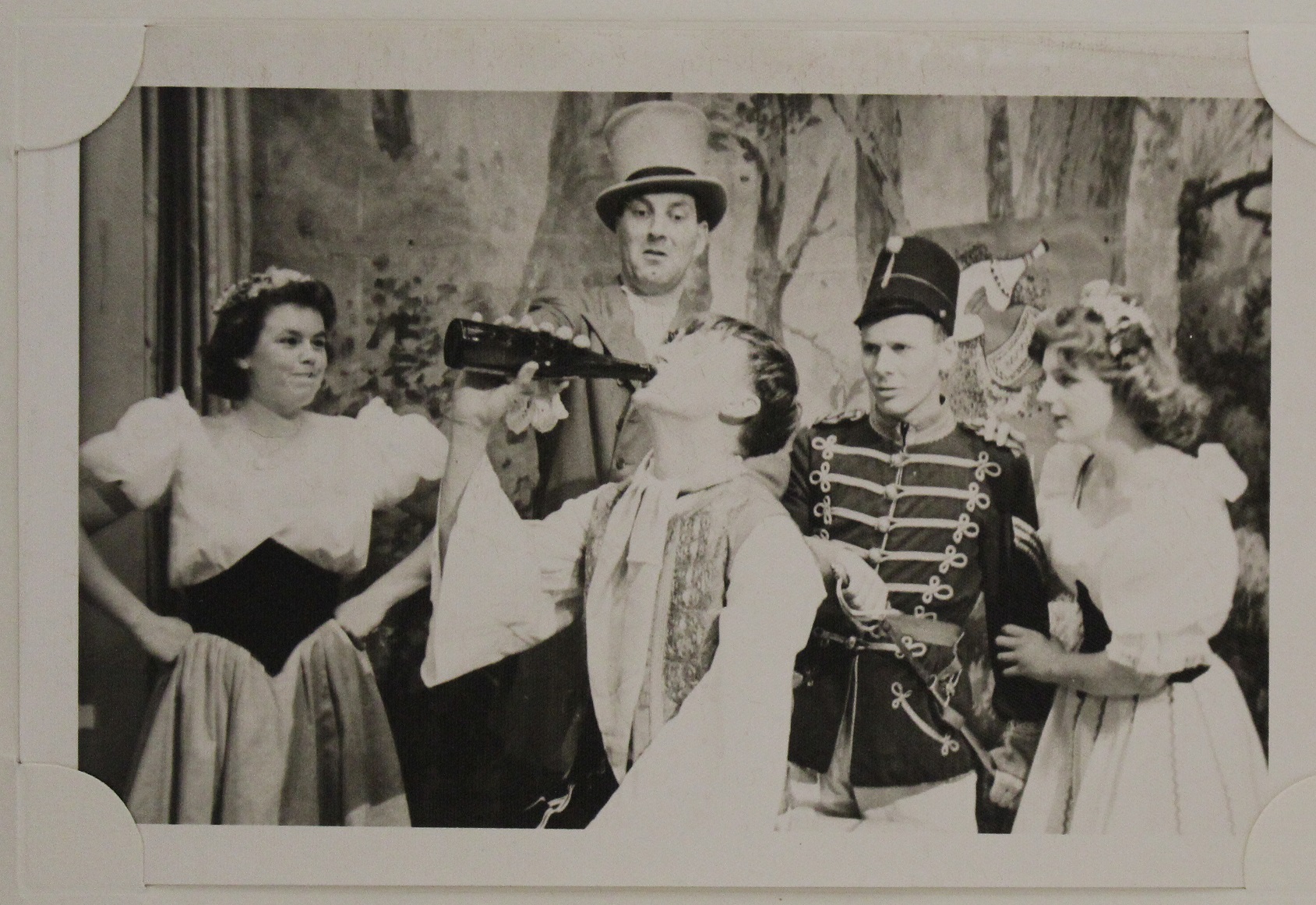
Students staging the opera “L’elisir d’amore” in the Lesser Free Trade Hall, 1959.
Dorothy Pilling (1910-1998)
I invite you now to get to know another remarkable woman. Dorothy Pilling was many things in her time. Not only was she one of the early students of the school but she became one of the most remembered teachers, too.
As a pianist, she ‘showed a clean touch and fluency’, according to an early review of a student performance. This cleanness is ever so slightly at odds with the seeming chaos she used to inspire in some of her classes. As well as teaching piano, she was also responsible for the school’s eurythmics and improvisation classes.
She would apparently turn up to class with fabulous shoes and in full leotard, pick someone to improvise on the piano in a set time signature (4-4, say). The rest of the students would then improvise movement to that melody, travelling clockwise around the room. She would then change the student’s signature (3-4 for example) and the others would have to keep in time. As one alumnus put it, “Can you march in 4 yet swing your arms in 3? I couldn’t!”
Whilst painfully awkward to contemplate, no one has yet relayed that they regretted the classes. Especially those that went to work with young children as music teachers. Matching movement to key and time signatures is one of the most effective ways for children to absorb music harmony and theory, they insist.
Dorothy was also a composer, one of the few published female composers to come from Manchester’s music schools. Her books on music for piano are still used to this day and her instruction books for teaching have been held in high regard by teachers for many years.
Article © of Heather Roberts
The story continues
To read Part 3 of this series click HERE
The archive and memories of the students are both full of fascinating features. Thanks to the National Lottery Heritage Fund, we now have the resources to explore them in greater detail.
In the meantime, to learn more about the archive, head over to the website https://www.rncm.ac.uk/research/resources/archives/
For hundreds of digitised images from the Northern School of Music’s various collections, visit our friends at Manchester Digital Music Archive https://www.mdmarchive.co.uk/exhibition/688/a-2020-legacy:-the-centenary-of-the-northern-school-of-music
For a sneak peek at more of the history of the school, discover some key dates on the timeline here https://my.visme.co/view/pvge1n44-nsm2020-2

